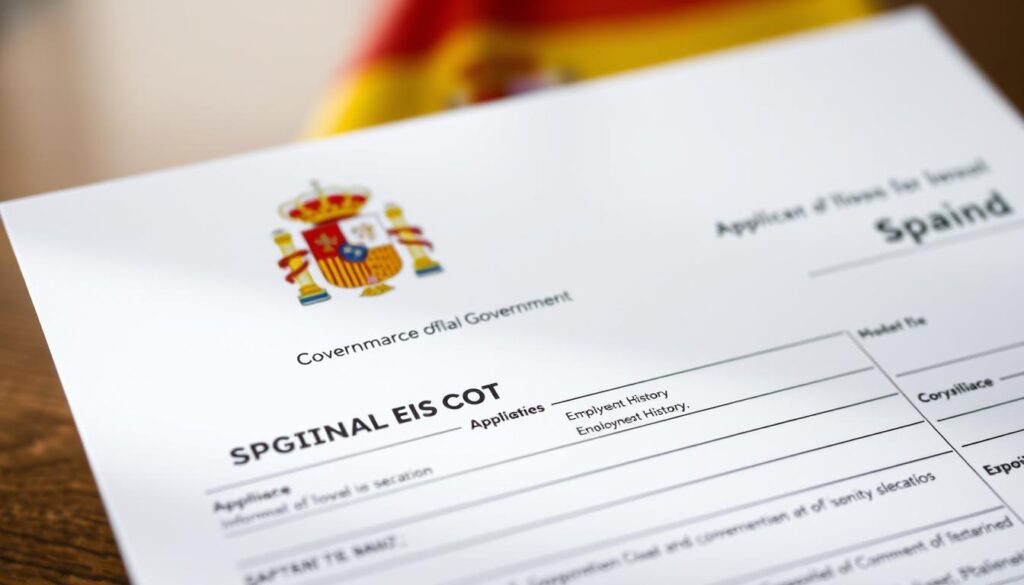Have you ever dreamed of working remotely while soaking up the sun in a vibrant, culturally rich country? Spain’s new policy for remote workers might just be the opportunity you’ve been waiting for. This guide will walk you through the essentials of the application process, income requirements, and the lifestyle benefits of becoming a digital nomad in Spain.
Spain’s government has introduced a streamlined immigration system designed to attract remote workers from around the globe. The program allows individuals to live and work in the country for up to five years, offering a unique blend of professional flexibility and personal enrichment.
From understanding the necessary documentation to exploring coworking spaces and affordable living costs, this guide provides all the information you need to make an informed decision. Whether you’re a freelancer or employed by a company outside Spain, this initiative opens doors to a new way of life.
Ready to take the first step toward your Spanish adventure? Let’s dive into the details and explore how you can turn this dream into reality.
Contents
- 1 Welcome Digital Nomads: Your Gateway to Spain’s Remote Work Lifestyle
- 2 Understanding Visa & Bureaucracy for Digital Nomads
- 3 Navigating the Application Process with Ease
- 4 Decoding Spain’s Visa Policies and Legal Requirements
- 5 Budgeting and the Cost of Living for Digital Nomads in Spain
- 6 Exploring Top Coworking Spaces and Networking Opportunities
- 7 Securing Accommodation and Ensuring Personal Safety Abroad
- 8 Optimizing Internet Speed and Remote Work Setup
- 9 Building Your Digital Nomad Community and Leveraging Resources
- 10 Insider Strategies for Handling Immigration, Documentation, and Relocation
- 11 Spotlight on the Best Spanish Cities for Remote Work
- 12 Final Reflections on Embracing the Digital Nomad Journey
Welcome Digital Nomads: Your Gateway to Spain’s Remote Work Lifestyle
Spain’s vibrant culture and modern infrastructure make it a dream destination for remote workers. From bustling cities to serene coastal towns, this country offers a unique blend of professional flexibility and personal enrichment. Whether you’re a freelancer or employed by a company outside Spain, the opportunities here are endless.

Spain’s work environment is designed to inspire. Modern coworking spaces are scattered across cities like Barcelona and Madrid, offering high-speed internet and a collaborative atmosphere. With a median download speed of 207.9 Mbps, staying connected is never an issue.
Beyond work, Spain’s cultural vibrancy is unmatched. From flamenco dancing to world-class cuisine, every day feels like an adventure. Networking opportunities abound, allowing you to connect with like-minded individuals from around the globe.
The government has streamlined the application process to make it easier for remote workers to settle in. With accessible resources and digital tools, integrating into local communities is seamless. Here’s a quick overview of what Spain offers:
| Feature | Details |
|---|---|
| Internet Speed | 207.9 Mbps (download), 148.6 Mbps (upload) |
| Cost of Living | €712.2/month (single person, without rent) |
| Coworking Spaces | Average cost: €200/month |
| Sunny Hours | Approximately 3,000 hours annually |
Spain’s remote work lifestyle is more than just a job—it’s an experience. With its welcoming communities and endless opportunities, this is your chance to redefine your work-life balance. Ready to take the leap? Spain is waiting for you.
Understanding Visa & Bureaucracy for Digital Nomads
Navigating the requirements for Spain’s remote work program can seem daunting, but with the right guidance, it’s straightforward. The application process is designed to be efficient, ensuring that remote workers can focus on their jobs rather than paperwork.
At its core, Spain’s Digital Nomad initiative requires precise documentation. This includes proof of income, a valid passport, and comprehensive health insurance. Each step is crucial, as missing details can delay your status approval.

Spain’s immigration policies are tailored to attract skilled professionals. Unlike some systems, this program doesn’t require employer sponsorship, making it accessible to freelancers and remote employees alike. However, understanding the rules is key to a smooth experience.
For context, U.S. studies show that clear documentation and employer actions significantly influence visa outcomes. Spain’s approach simplifies this, offering a streamlined path for individuals to thrive in a new country.
Here’s a breakdown of the key steps:
| Step | Details |
|---|---|
| Gather Documents | Proof of income, passport, health insurance |
| Submit Application | Online or at a consulate |
| Wait for Approval | Average processing time: 1-2 months |
| Renewal Process | Valid for 1 year, renewable for up to 5 years |
By breaking down the system into manageable parts, Spain empowers digital nomads to confidently handle administrative requirements. With the right preparation, you’ll be ready to embrace this exciting opportunity.
Embarking on the journey to work remotely in Spain starts with understanding the application process. Spain’s government has designed a system that simplifies each step, ensuring a smooth experience for applicants.
First, gather all necessary documentation. This includes proof of income, a valid passport, and comprehensive health insurance. Missing details can delay your status approval, so double-check everything.

Next, submit your application online or at a consulate. The process is straightforward, but choosing between standard and premium processing can impact your wait time. Premium options often reduce delays, making them ideal for those on a tight schedule.
Here’s a breakdown of the key steps:
| Step | Details |
|---|---|
| Gather Documents | Proof of income, passport, health insurance |
| Submit Application | Online or at a consulate |
| Wait for Approval | Average processing time: 1-2 months |
| Renewal Process | Valid for 1 year, renewable for up to 5 years |
Finally, review your application carefully. Errors or incomplete information can lead to delays. Use digital tools to scan and label documents, ensuring everything is legible and accessible.
Spain’s policy empowers individuals to navigate the process confidently. With the right preparation, you’ll be ready to embrace this exciting opportunity and start your remote work journey in this vibrant country.
Decoding Spain’s Visa Policies and Legal Requirements
Understanding the legal framework of Spain’s Digital Nomad program is essential for a seamless transition. The government has crafted policies to attract remote workers, but knowing your rights and responsibilities is key to a successful experience.
To secure your status, you’ll need to meet specific legal requirements. This includes proof of income, comprehensive health insurance, and a valid passport. Double-checking your documentation ensures a smooth application process.
Spain’s policy stands out for its accessibility. Unlike some countries, it doesn’t require employer sponsorship, making it ideal for freelancers and remote employees. However, staying updated with law changes is crucial, as policies can evolve.
Here’s a quick comparison of Spain’s approach with international practices:
| Aspect | Spain | International Average |
|---|---|---|
| Processing Time | 1-2 months | 2-3 months |
| Health Insurance | Full coverage required | Partial coverage accepted |
| Renewal Period | Up to 5 years | 1-3 years |
Practical tips can make a big difference. Use digital tools to organize your application materials and stay informed about policy updates. This proactive approach minimizes delays and ensures compliance.
Spain’s immigration system is designed to empower remote workers. By understanding the legal landscape, you can confidently embrace this opportunity and focus on thriving in your new country.
Budgeting and the Cost of Living for Digital Nomads in Spain
Spain offers a unique blend of affordability and lifestyle for digital nomads, making it a top choice for remote work. Whether you’re drawn to bustling cities or serene coastal towns, understanding the cost of living is essential for planning your stay.
Living costs vary across regions. Madrid and Barcelona are the most expensive, with monthly expenses averaging €1,200–€1,500. In contrast, smaller cities like Valencia or Granada offer a more budget-friendly lifestyle, with costs around €800–€1,000 per month.
Here’s a breakdown of typical monthly expenses:
| Expense | Madrid/Barcelona | Valencia/Granada |
|---|---|---|
| Accommodation | €700–€900 | €400–€600 |
| Food | €200–€300 | €150–€250 |
| Transport | €50–€70 | €30–€50 |
| Utilities | €100–€150 | €80–€120 |
Budgeting tips can help you stretch your euros further. Opt for shared accommodations or co-living spaces to save on rent. Cooking at home instead of dining out can also reduce food expenses significantly.
Spain’s cost of living is lower compared to the United States, offering great value for money. For example, groceries are 30% cheaper, and public transport is both affordable and efficient.
Practical tools like budgeting apps can simplify expense tracking. Apps like Mint or YNAB help you monitor spending and set financial goals. These tools are especially useful for managing fluctuating income as a freelancer.
Balancing lifestyle aspirations with financial realities is key. Spain’s vibrant culture and affordable living make it an ideal destination for digital nomads. With careful planning, you can enjoy the best of both worlds.
Exploring Top Coworking Spaces and Networking Opportunities
Spain’s coworking spaces are a haven for digital nomads seeking productivity and connection. From bustling cities like Madrid and Barcelona to serene towns like Valencia, these hubs cater to every work style. They offer modern amenities, high-speed internet, and a collaborative atmosphere that inspires creativity.
In Madrid, spaces like Impact Hub and Utopicus stand out. They provide flexible desks, private offices, and networking events. Barcelona’s Betahaus and OneCoWork are equally impressive, offering stunning views and a vibrant community of professionals.
Here’s a quick comparison of top coworking spaces:
| City | Space | Key Features |
|---|---|---|
| Madrid | Impact Hub | Networking events, private offices |
| Barcelona | Betahaus | High-speed internet, community events |
| Valencia | Wayco | Affordable rates, modern design |
These spaces are more than just workplaces. They host meetups, workshops, and social events that foster networking and professional growth. For digital nomads, this is a chance to connect with like-minded individuals from around the world.
Digital tools like Slack and Meetup can further enhance your experience. They help you stay connected, share resources, and find local events. Many coworking communities also have online forums where members exchange tips and advice.
Success stories abound in Spain’s coworking scene. Freelancers and remote employees have found not just workspaces but lifelong connections and career opportunities. These spaces are designed to help you thrive, both professionally and personally.
Whether you’re looking for a quiet corner or a bustling hub, Spain’s coworking spaces have something for everyone. They’re the perfect blend of productivity and community, making your remote work journey truly rewarding.
Securing Accommodation and Ensuring Personal Safety Abroad
Finding the perfect place to live in Spain is a crucial step for any digital nomad. Your home sets the tone for your experience, so it’s essential to prioritize affordability, safety, and convenience. Start your search early, even before your visa is approved, to secure the best options.
Your immigration status plays a significant role in rental agreements. Landlords often require proof of legal residency or a work permit. Ensure your documentation is in order to avoid delays. Many landlords also ask for a Spanish bank account, so setting one up early can streamline the process.
Safety is another critical factor. Research neighborhoods thoroughly using tools like Numbeo or SpotCrime to check crime rates. Avoid ground-floor apartments and always verify emergency exits in your building. Staying informed about local policy changes can also protect you from potential scams.
Here’s a quick guide to finding and securing accommodation:
| Step | Details |
|---|---|
| Research | Use apps like Idealista or Fotocasa to compare listings. |
| Verify | Check landlord credentials and property reviews. |
| Negotiate | Discuss terms like deposit, utilities, and lease length. |
| Sign | Review the contract carefully before signing. |
Negotiating rental contracts can save you money and ensure flexibility. Many landlords are open to short-term leases, which are ideal for digital nomads. Always read the fine print and clarify any doubts before committing.
Local resources can enhance your safety. Join expat groups on Facebook or Meetup to get firsthand advice. Apps like SafeAround provide real-time safety ratings for neighborhoods, helping you make informed decisions.
Finally, maintain open communication with friends and family. Regular check-ins can provide peace of mind and ensure someone knows your whereabouts. With the right preparation, your transition to Spain will be smooth and secure.
Optimizing Internet Speed and Remote Work Setup
Setting up a high-performance remote work environment is key to thriving as a digital nomad in Spain. Reliable internet and efficient tools are the backbone of your workflow, ensuring productivity and seamless collaboration. With the right setup, you can focus on your work while enjoying the vibrant lifestyle this country offers.
Start by improving your internet speed. Spain boasts an average download speed of 207.9 Mbps, but you can enhance this further. Use a wired connection instead of Wi-Fi for stability. Position your router centrally and minimize interference from other devices. Tools like Speedtest can help you monitor and optimize your connection.
Your workspace setup is equally important. Invest in ergonomic furniture to prevent fatigue and boost productivity. A dual-monitor setup can streamline multitasking, while noise-canceling headphones create a distraction-free environment. Many coworking spaces in Spain already offer these amenities, making them a great option for remote workers.
Here’s a comparison of remote work setups in Spain and the U.S.:
| Aspect | Spain | U.S. |
|---|---|---|
| Internet Speed | 207.9 Mbps (download) | 150 Mbps (download) |
| Cost of Coworking Space | €200/month | $300/month |
| Ergonomic Setup | Common in coworking spaces | Often self-provided |
Digital tools can further enhance your experience. Apps like NetSpot analyze Wi-Fi coverage, while PingPlotter troubleshoots network issues. Backup solutions like cloud storage and portable hard drives ensure your work is safe, even during unexpected disruptions.
Investing in reliable technology is a game-changer. High-quality laptops, external monitors, and backup power supplies minimize downtime. These tools not only improve efficiency but also give you peace of mind, allowing you to focus on your professional goals.
Spain’s policy supports remote workers by providing access to modern infrastructure and resources. By optimizing your setup, you can fully embrace the digital nomad lifestyle and make the most of your time in this inspiring country.
Building Your Digital Nomad Community and Leveraging Resources
Building a strong community is essential for thriving as a digital nomad in Spain. A supportive network not only enhances your experience but also provides valuable resources and opportunities. Whether you’re navigating the application process or settling into a new city, connecting with others can make all the difference.
Start by joining online platforms like Facebook groups or Meetup. These spaces are perfect for sharing experiences, asking questions, and finding local events. Many digital nomads also use apps like Slack or Discord to stay connected and collaborate on projects.
Local meetups are another great way to build your network. Cities like Barcelona and Madrid host regular events for remote workers. These gatherings often include workshops, networking sessions, and social activities. Attending these events can help you meet like-minded individuals and learn from their experiences.
Here’s a quick guide to leveraging community resources:
| Resource | Benefits |
|---|---|
| Online Groups | Access to advice, job leads, and local insights |
| Meetups | Networking, skill-sharing, and social connections |
| Coworking Spaces | Collaborative environment and professional growth |
Digital tools can also enhance your networking efforts. Platforms like LinkedIn and Eventbrite help you find industry experts and events. These tools are especially useful for staying updated on policy changes and new opportunities.
Active participation in community-building events is key to long-term success. Whether it’s organizing a workshop or joining a language exchange, your involvement can create lasting connections. Shared experiences often lead to collaborations and friendships that enrich your journey.
Spain’s immigration policies encourage remote workers to integrate into local communities. By leveraging resources and building a strong network, you can overcome challenges and thrive in this vibrant country. Take the first step today and start connecting with your digital nomad community.
Insider Strategies for Handling Immigration, Documentation, and Relocation
Mastering the intricacies of immigration and relocation requires insider knowledge and strategic planning. The process can seem overwhelming, but with the right approach, you can navigate it smoothly. Proper documentation and expert support are the keys to success.
Start by gathering all necessary paperwork. This includes proof of income, a valid passport, and comprehensive health insurance. Missing details can delay your application, so double-check everything. Use digital tools to organize and label your documents for easy access.
Here are some insider tips to simplify the process:
- Work with an immigration advisor to ensure compliance with local policy.
- Coordinate with relocation experts to handle logistics like housing and transportation.
- Leverage legal specialists to review contracts and clarify any doubts.
Real-world examples show the value of preparation. For instance, many applicants who used premium processing services experienced faster approvals. This highlights the importance of investing in professional services to streamline your journey.
Here’s a comparison of standard vs. premium processing:
| Processing Type | Approval Rate | Timeframe |
|---|---|---|
| Standard | 78.7% | Up to 6 months |
| Premium | 83.2% | 15 days |
Planning is crucial. Start early, even before your visa is approved, to secure housing and other essentials. Use apps like Idealista to find accommodations and Numbeo to research neighborhoods for safety.
Finally, stay informed about policy changes. Immigration rules can evolve, and being proactive ensures compliance. Join expat groups or online forums to get updates and share experiences.
By leveraging professional resources and following these strategies, you can turn the challenges of immigration and relocation into a seamless experience. Take the first step today and make your move to Spain a success.
Spotlight on the Best Spanish Cities for Remote Work
Spain’s cities are buzzing with opportunities for remote workers, blending culture, connectivity, and community. Whether you’re drawn to bustling metropolises or serene coastal towns, these urban hubs offer the perfect balance of work and play. Let’s explore the top destinations that are redefining the digital nomad experience.
Barcelona stands out as a top choice for remote workers. With its thriving coworking spaces, stunning architecture, and vibrant expat community, it’s no wonder the city boasts an 85% remote work satisfaction rate. The average cost of living is €1,200 per month, making it affordable compared to other European capitals.
Madrid offers a diverse and dynamic environment for digital nomads. Home to over 200 coworking spaces, the city caters to every professional need. Madrid’s policy on remote work is supportive, with streamlined immigration processes that make it easy for applicants to settle in.
For a more budget-friendly option, consider Valencia. This coastal city has seen a 40% rise in remote workers over the last two years. With its lower cost of living (around €800 per month) and sunny weather, Valencia is ideal for those seeking a relaxed yet productive lifestyle.
Here’s a quick comparison of these cities:
| City | Cost of Living | Coworking Spaces | Key Features |
|---|---|---|---|
| Barcelona | €1,200/month | 150+ | High-speed internet, cultural attractions |
| Madrid | €1,300/month | 200+ | Diverse community, professional events |
| Valencia | €800/month | 50+ | Affordable, sunny, relaxed vibe |
Each city offers unique advantages. Barcelona’s beaches and nightlife are perfect for socializing, while Madrid’s museums and parks provide endless inspiration. Valencia’s slower pace and affordability make it a haven for those prioritizing work-life balance.
Spain’s policy on remote work continues to attract professionals worldwide. With its welcoming communities and modern infrastructure, these cities are ideal for anyone looking to thrive as a digital nomad. Start your journey today and discover the perfect Spanish city for your remote work adventure.
Final Reflections on Embracing the Digital Nomad Journey
Embracing the digital nomad lifestyle in Spain is more than a career move—it’s a transformative journey. From navigating the application process to building a supportive community, every step offers opportunities for growth and discovery. Challenges may arise, but they are outweighed by the rewards of living in a vibrant, culturally rich environment.
Preparation is key. Ensure your documentation is thorough and stay informed about policy updates. Leverage local resources and connect with fellow nomads to ease your transition. Spain’s welcoming immigration system is designed to help you thrive, making it easier to focus on your goals.
This journey is about more than work—it’s about embracing new experiences and expanding your horizons. With determination and adaptability, you can turn challenges into stepping stones. Take the leap, and let Spain inspire your next chapter.


